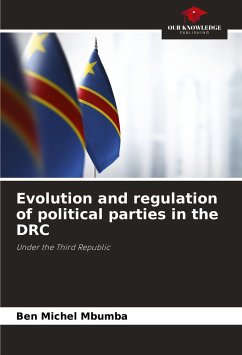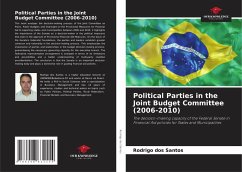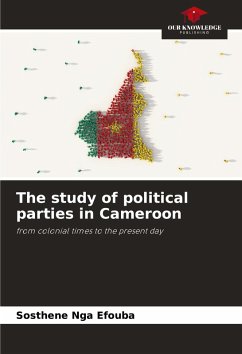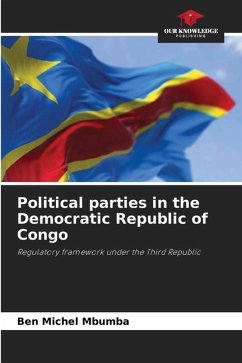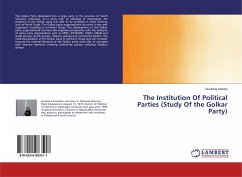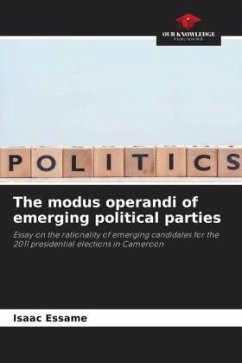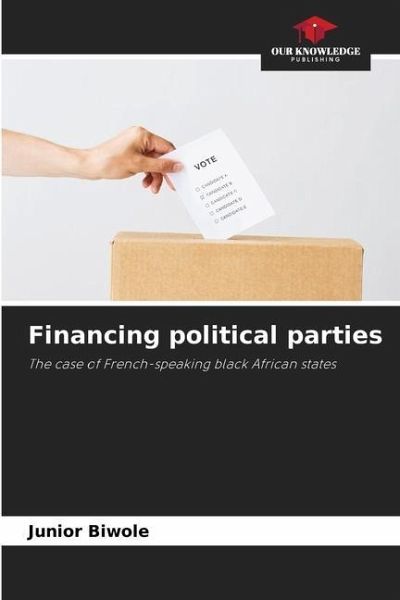
Financing political parties
The case of French-speaking black African states
Versandkostenfrei!
Versandfertig in 6-10 Tagen
57,99 €
inkl. MwSt.

PAYBACK Punkte
29 °P sammeln!
This study focuses on the financing of political parties in French-speaking Africa. The constitutional consecration of political parties engaged in the contest for the expression of suffrage means that they have a great need for resources to function. Generally speaking, political parties are financed in two ways. Public funding is the primary means of financing political parties. It is based on the need to promote the partisan phenomenon, and on the need to circumvent the difficulties encountered by political parties as a result of inflation in the cost of political life. Public authorities f...
This study focuses on the financing of political parties in French-speaking Africa. The constitutional consecration of political parties engaged in the contest for the expression of suffrage means that they have a great need for resources to function. Generally speaking, political parties are financed in two ways. Public funding is the primary means of financing political parties. It is based on the need to promote the partisan phenomenon, and on the need to circumvent the difficulties encountered by political parties as a result of inflation in the cost of political life. Public authorities fund political parties according to certain criteria, allocating sums either for their day-to-day running or for election campaigns. Private funding is the other variant of political party financing. Political parties may have their own resources, notably membership fees, which are their main source of funding. This work has therefore proposed a mechanism whereby public funds would be grantedto political parties on the basis of their representativeness.



